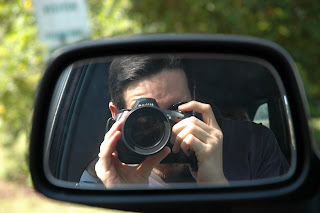My father-in-law showed me this book when we visited recently. Within a few minutes I had decided it looked interesting, and possibly also useful for me as a teacher. I suggested to Laetitia that she could buy it for me for Christmas.
She did.
And I've just finished reading it. It's fantastic! A big book (280pp text + 130pp end-matter), but easy to read, it's full of amazing, inspiring personal stories along with fascinating insights into how the human brain works. Complex scientific theories and discoveries are explained in a straightforward and lucid manner, making the implications clear while avoiding excessive use of difficult terminology or grammar. (In other words, the writing is better than mine in that last sentence!)
My father-in-law recommended it to me because, he said, it spoke directly to how he felt as a stroke survivor. Strokes and brain damage are a significant part of the book's subject matter. Other topics include the links between sense, perception and action, learning difficulties, bad habits and obsessions, pain, and of course a fair depth of neurological anatomy and physiology. I particularly enjoyed the chapter on imagination and the appendix about culture.
One chapter I did have to skim through quickly. The author, Norman Doidge, goes into more explicit detail about a few sexual perversions than I personally care for. Respectfully and without hype, but it's just not something I want to read.
The author does write from an evolutionary point of view (in spite of the magnificent evidence presented for the glorious design of the human brain and nervous system), but this generally does not affect the material presented in the main body of the text. The appendix on culture is based heavily on evolutionary ideas—yet I still found it a good read (note my comment above).
The insights I've gained just from a first reading of this book will, I am already sure, help me in my day job as a high school teacher. And I will now be able to speak with more certainty to help some of my students with their own learning—habits of mind, study, etc.
And of course, I now want to go get my CaT scan of my brain from 2001, to see whether I can detect anything unusual. For instance, apparently musicians have stronger links between hemispheres, and a strong spatial awareness correlates with a large hippocampus. Anyone know any radiographers or neurologists who can help me know what I'm looking at?
Recommendation: Read this book. (Just beware chapter 4 if, like me, you prefer to stay with G or PG.)
Subscribe to:
Post Comments (Atom)

1 comment:
viva la glorious evolution!
Post a Comment